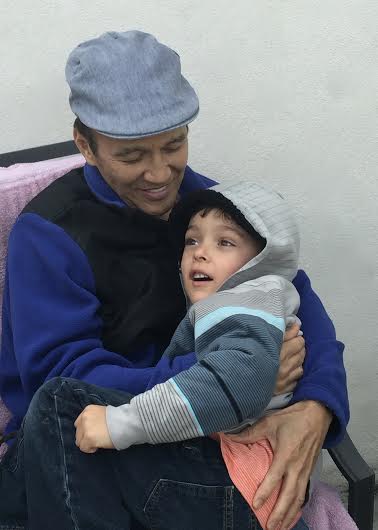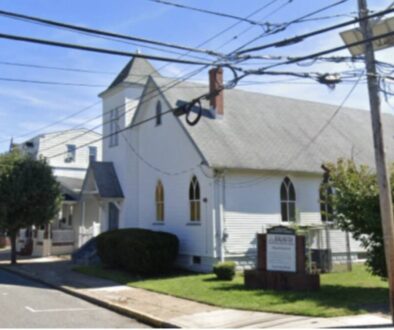Philip Yancey: Christians and Politics
by S.M. Chen
In 2012 Philip Yancey, Jewish Christian apologist, whose approximate 20 books have sold no fewer than 14 million copies, wrote a 26 page essay entitled ‘Christians and Politics – Uneasy Partners.’ It became a short book, which I read recently.
2012 was an election year, as was 2016, last year. The book is no less germane today as then – perhaps more so.
I first encountered Yancey in print some years ago, when a sister gave me one of his books. I became quickly captivated by his clear thinking, literate phrasing, and compassionate, broadminded approach to difficult issues. His writing is fluid, at times elegant, and goes down easily.
So it was with some anticipation that I read his short book. I was not disappointed.
94% of 115 reviewers at amazon.com rated the book 4 or 5 stars (of 5). I would do similarly.
Yancey examines 5 approaches to politics for a Christian, ranging from complete avoidance to full engagement. Many choose something in between. Yet some of us remain uneasy, and search for a more satisfying modus vivendi. But is it possible to be in the world but not of the world without calling a monastery or convent home?
I once read a fortune cookie with that wish printed inside: ‘May you live in interesting times.’ It seems to have come to pass.
Last year the winning candidate for POTUS garnered close to 3 million fewer popular votes (not fake news), yet won the Electoral College vote. This discordance has happened before, but not often, and never (to my knowledge) with such great divergence.
Some believe that nothing happens without being caused, ordained or permitted by the Almighty. He erects and takes down kingdoms. If this be true, why bother voting at all? Does it matter?
I once got into discussion with a friend over voting. My friend maintained I should vote in national elections. The disenfranchised (women, people of color, et al) had fought hard for the privilege of casting a ballot.
I granted that but countered with this: We, the people, do not elect the POTUS. The Electoral College does. We elect electors, who generally behave in expected manner. But not all are legally bound to do so.
Like two equally skilled chess players, my friend and I ended in a stalemate (I do vote, by the way).
The two party system holds sway.
Is the Almighty a Republican? A Democrat? I suspect He transcends such arbitrary manmade labels.
Certain politicians tout their religiosity come election time. If their words and actions conflict with the teachings of the deity to whom they profess allegiance, certain voters seem to turn a blind eye.
Over 80% of white Evangelicals voted for the current POTUS in 2016.
When I try to reconcile the lives of some so-called Christian politicians with Holy Writ, including Matthew 25, I conclude that some may be saved not because of their politics, but in spite of them. Divine grace is supposed to be sufficient. We shall see.
In Old Testament times, the Israelites wanted a king. Samuel called for caution, but they were adamant. They thought they knew what they were getting in a fine looking apple named Saul. Little did they know that a worm of destruction would ultimately have its way with the apple.
Be careful what you wish for.
In one of his books, Yancey gives the 3 reasons he believes in a Higher Power.
I list them, not necessarily in order of descending importance: nature, classical music, romantic love.
To those I would add the best of other fine arts: visual art/paintings, literature (including poetry). Agape love would seem to fit in here somewhere.
In his 1979 film “Manhattan,” (prolific, he makes one a year, much as novelist Isabel Allende begins a novel each January 8) Woody Allen, in a pensive mood, verbally lists some things that make life worth living. Although his list may seem esoteric, some things on that list might make ours. Agape love would seem to fit in here somewhere.
A friend of mine maintains all good things come from God. I have yet to be able to naysay him.
Whether you agree with Yancey or not (he expresses his views gently; he does not bludgeon. To some people with a hammer, everything looks like a nail. This is not the case with him), you may be edified by reading his book. If nothing else, you may learn something. He draws from a broad base of knowledge, and has firsthand experience with well-known leaders. He writes gracefully, and the grace of which he writes seems to be something he has experienced personally. Yancey may not have all the answers, but he knows how to pose the questions. Some that we may ask ourselves as we gaze into the mirror or that come to us in the dark hours of a quiet night.
The answers may not be found in Holy Writ, or in the SOP, or from the pulpit.
Like Jacob, we may wrestle, perhaps finding a blessing only with the approach of dawn.
If we are all in the same boat, and we disagree with how the majority rows, should we stop rowing, or row in the opposite direction? What if we dislike the direction the boat is going? What if we dislike our fellow passengers? We may love them but that doesn’t mean we have to like them – does it? Questions abound.
I appreciate Christ’s distillation of the Decalogue into the 2 great commandments, and relate to his logic: if we cannot love our fellow man, whom we have seen, how can we love God, whom we have not seen?
Tom Lehrer, Harvard mathematician turned chanteur and standup pianist, once opined, “I just hate people who don’t love their fellow man.” His irony does not escape notice.
In the final analysis, I think love will triumph. If that be the underpinning of our interactions, including in matters of Caesar, I think we will not go wrong.
For, as Peter wrote, “Love will cover a multitude of sins.” And who among us is not a sinner?
As we stumble toward the light (and we all do), writers like Philip Yancey help illuminate our path. I am glad he is on our side. We need more like him.
(Christians and Politics is available on Amazon. Adventist Today is an Amazon affiliate and receives a small percentage of your purchase if you purchase using the links on this page.)
 S.M. Chen writes from California
S.M. Chen writes from California




